Related Research Articles

Fantasy Games Unlimited (FGU) is a publishing house for tabletop and role-playing games. The company has no in-house design teams and relies on submitted material from outside talent.
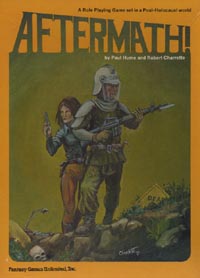
Aftermath! is a role-playing game created by Paul Hume and Robert Charette and published in 1981 by Fantasy Games Unlimited.
Robert N. Charrette is an American graphic artist, game designer, sculptor and author. Charrette has authored more than a dozen novels. His gaming materials have received many Origins Awards. Charrette was inducted in the Origins Hall of Fame in 2003. His work is known for a clean, realistic style that invokes themes from Feudal Japan and Chanbara films and in particular, historical and fantastic representations of Samurai culture. His early work in game design and miniature sculpting set the tone for depictions of Japanese mythology in American fantasy and science fiction. His 1979 role-playing game Bushido was one of the first role-playing games with a non-Western theme and remained in print for more than three decades. Charrette produced gaming products for Fantasy Games Unlimited, Grenadier Models Inc., Ral Partha Enterprises, FASA and currently operates Parroom Enterprises, LLC, a boutique miniatures game company.
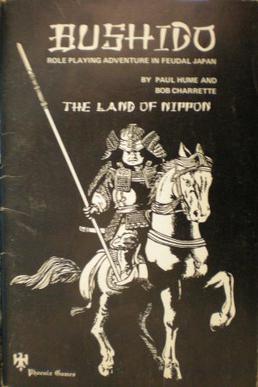
Bushido is a Samurai role-playing game set in Feudal Japan, originally designed by Robert N. Charrette and Paul R. Hume and published originally by Tyr Games, then Phoenix Games, and subsequently by Fantasy Games Unlimited. The setting for the game is a land called Nippon, and characters adventure in this heroic, mythic, and fantastic analogue of Japan's past.

The Dungeons & Dragons Basic Set is a set of rulebooks for the Dungeons & Dragons (D&D) fantasy role-playing game. First published in 1977, it saw a handful of revisions and reprintings. The first edition was written by J. Eric Holmes based on Gary Gygax and Dave Arneson's original work. Later editions were edited by Tom Moldvay, Frank Mentzer, Troy Denning, and Doug Stewart.

Daredevils is a tabletop role-playing game published by Fantasy Games Unlimited (FGU) in 1982 that is meant to emulate pulp magazine fiction of the 1930s.
Lewis Errol Pulsipher, often credited as Lew Pulsipher, is an American teacher, game designer, and author, whose subject is role playing games, board games, card games, and video games. He was the first person in the North Carolina community college system to teach game design classes, in fall 2004. He has designed half a dozen published boardgames, written more than 150 articles about games, contributed to several books about games, and presented at game conventions and conferences.
Paul Hume has been designing role-playing games since the mid 1970s. He co-wrote, with Bob Charrette, Bushido, Aftermath!, and Daredevils for Fantasy Games Unlimited. He is also a co-author of Shadowrun, among other games.
Scott B. Bizar is the founder of Fantasy Games Unlimited, a game publisher which contracts writers and artists that work primarily on role-playing games.
Little Soldier Games was an American game company that produced role-playing games and game supplements.
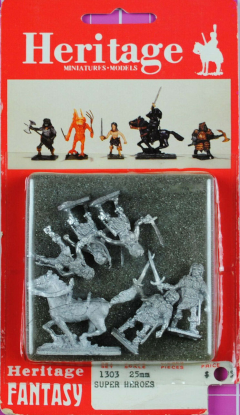
Heritage Models was an American game company that produced role-playing games, metal miniatures, and game supplements.
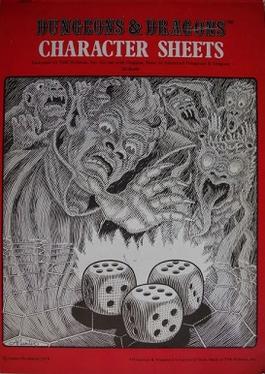
Character Sheets is a supplement for fantasy role-playing games published by Games Workshop in 1978.

Cults of Prax is a supplement published by Chaosium in 1979 for the fantasy role-playing game RuneQuest that describes the various religions that are central to the game. It was republished in 2016 in PDF format as part of Chaosium's RuneQuest: Classic Edition Kickstarter.

The Mines of Keridav is a 1979 fantasy role-playing game adventure published by Phoenix Games.
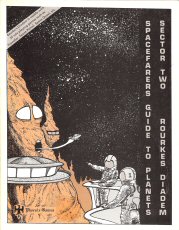
Spacefarers Guide to Planets: Sector Two - Rourkes Diadem is a 1979 role-playing game supplement published by Phoenix Games.
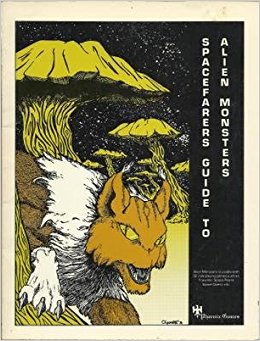
Spacefarers Guide to Alien Monsters is a 1979 role-playing game supplement published by Phoenix Games.

Castle Book I is a 1978 fantasy role-playing game supplement published by Judges Guild.

The Book of Monsters is a supplement for fantasy role-playing games published by Little Soldier Games in 1976.

The Book of Demons is a supplement published by Little Soldier Games in 1976 for fantasy role-playing games.

The Book of Sorcery is a supplement for fantasy role-playing games published by Little Soldier Games in 1977.
References
- 1 2 3 4 Shannon Appelcline (2011). Designers & Dragons. Mongoose Publishing. ISBN 978-1-907702-58-7.
- 1 2 Dragon #49 (May 1981)
- 1 2 3 4 5 Shannon Appelcline (2014). Designers & Dragons: The '70s. Evil Hat Productions. ISBN 978-1-61317-075-5.
- 1 2 Schick, Lawrence (1991). Heroic Worlds: A History and Guide to Role-Playing Games. Prometheus Books. ISBN 0-87975-653-5.
- ↑ Dragon #31 (Nov 1979)
- ↑ "The Awards Story". Archived from the original on 2016-03-15. Retrieved 2016-01-22.
- ↑ Dragon #46 (Feb 1981)
- ↑ Moves #59 (Oct/Nov 1981)